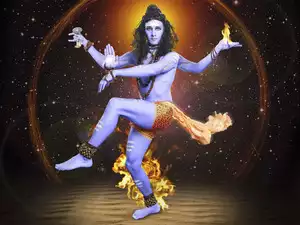David Lynch: 5 Reasons Why His Surreal Films Changed Cinema Forever

David Lynch
David Lynch, the famous mov ie producer known for his strange style, has made a permanent imprint on both film and TV. Most popular for works like Blue Velvet (1986) and Twin Pinnacles (1990), Lynch’s commitments changed the manner in which crowds draw in with account intricacy, illusory visuals, and mental profundity. His capacity to mix the strange with the normal dazzled ages of watchers, investigating the propensities of the human way of behaving, the dimness underneath the apparently commonplace, and the layers of the psyche.
ie producer known for his strange style, has made a permanent imprint on both film and TV. Most popular for works like Blue Velvet (1986) and Twin Pinnacles (1990), Lynch’s commitments changed the manner in which crowds draw in with account intricacy, illusory visuals, and mental profundity. His capacity to mix the strange with the normal dazzled ages of watchers, investigating the propensities of the human way of behaving, the dimness underneath the apparently commonplace, and the layers of the psyche.
Lynch was brought into the world in Missoula, Montana, in 1946 and has shown an energy for visual workmanship since the beginning. He concentrated on painting at the Pennsylvania Institute of Expressive Arts prior to progressing to filmmaking. His element debut, Eraserhead (1977), was a terrible investigation of dread, separation, and existential tension. The film’s theoretical, tormenting pictures and moderate sound plan set the vibe for a lot of Lynch’s later works.
His advancement accompanied Blue Velvet, a distinct, disrupting noir film that depicted the dull underside of rural life. The film is generally viewed as one of the best movies ever, with its mind-boggling depiction of the American mind and its disruption of the class’ sayings. In it, Lynch investigates topics of brutality, desire, and blamelessness lost, introducing an unmistakable difference between the beautiful universe of unassuming community America and the debasement prowling just underneath the surface.
In 1990, Lynch took his vision to TV with Twin Pinnacles, a show that blew some minds and turned into a social standard. The show’s focal secret — who killed Laura Palmer? — was just the entryway into a lot bigger story about the odd, dreamlike, and powerful components that plagued the apparently charming town of Twin Pinnacles. Lynch’s impact on TV couldn’t possibly be more significant; Twin Pinnacles helped prepare for future shows that would investigate comparable subjects, like The X-Documents, Lost, and More Bizarre Things. The show was famous for its crackpot characters, fanciful arrangements, and inventive way of dealing with narrating, with Lynch’s unique unusual symbolism and mental pressure at the front.
Lynch’s other remarkable works incorporate Mulholland Drive (2001), which procured him an Institute Grant designation for Best Chief, and Inland Realm (2006), a psyche-twisting investigation of character and the idea of the real world. His movies frequently obscured the lines between the real world and dream, investigating the psyche and passing on crowds to sort out divided accounts. Lynch’s eagerness to try different things with structure and his dismissal of ordinary narrating have made him a profoundly compelling figure in both film and TV.
Past his work as a movie producer, Lynch is likewise a performer, visual craftsman, and creator. He has delivered a few collections, including Insane Comedian Time (2011), which mirrors his fondness for the peculiar and unique. His visual workmanship, frequently including upsetting symbolism, is portrayed by his crude personal power and conceptual methodology. Lynch has likewise composed books, for example, Space to Dream, a diary that offers knowledge into his innovative strategy and the motivations behind his movies.
All through his vocation, Lynch kept a quality of secret, frequently keeping his own life hidden while permitting his specialty to justify itself. His movies and network shows frequently managed subjects of duality, the clouded side of human instinct, and the obscured limits between dreams and reality. His works keep on being examined and examined by film researchers, with new ages of producers referring to Lynch as a significant impact.
David Lynch’s heritage is one of intensity, innovation, and a promise to investigate the unexplored world. His work provoked crowds to go up against awkward bits of insight and to embrace the unusual and the superb. As a chief, essayist, and craftsman, Lynch cut out a special specialty in the realm of film and TV, and his impact will without a doubt be felt for a long time into the future. Lynch’s capacity to transform the standard into the unprecedented has gotten him a place as one of the most visionary and capricious specialists of his time.
Source: AP News
Also Read: Matthew Stafford: 5 Ways He Played for L.A. Amid Wildfires, Despite Challenges








